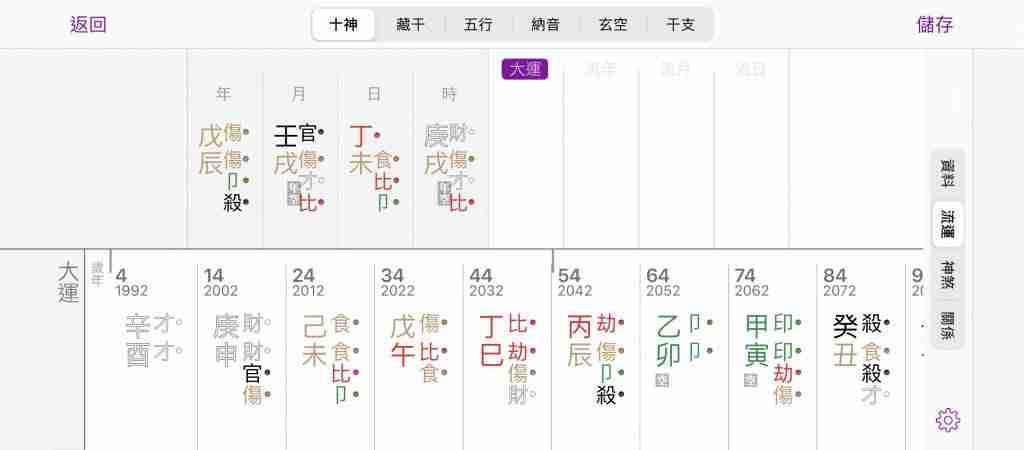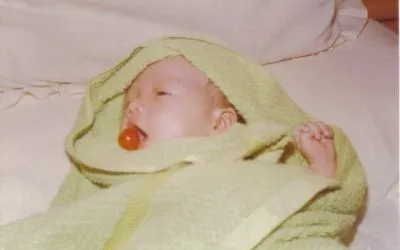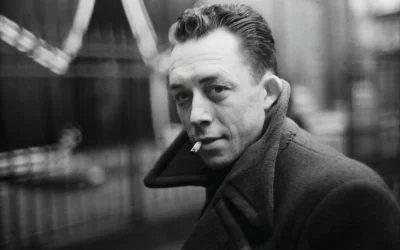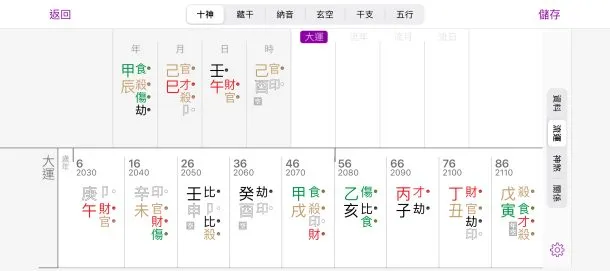I’ve wanted to talk about this notion of “doing good deeds” for some time now.
Again, this is not new, and I’ve spoken about it before, albeit not via a dedicated blog post. You can read the post here: Can You ‘Change’ Your BaZi & Zi Wei Dou Shu Chart?
A special group of people who are naive and cannot think critically believe that as long as they do “good deeds” or “do good” in general, they will get something in return. Are you some shallow muppet of a simpleton to really view life this way?
If you followed my Facebook page, you would have seen me lamenting about August being a difficult month because I had a surge of clients. A good bunch of them failed to understand why I encourage people to read my blog before coming for a consultation and why I have certain rules in place, so, of course, the consultation did not go very well.
The impetus for this blog post is that I’ve been meeting a lot of spiritual narcissists recently who suddenly wish to turn to BaZi for guidance, not knowing that a BaZi consultation is probably going to end up a metaphorical slap to the face. They are the ones who are the prime examples of what I’m about to discuss – which is doing good deeds and what it means to be a good person.
Let me give an example, and this is the first time someone has ever said this to me:

I quote: “I am a [insert religion here], so I am not worried about not being able to transcend my chart.”
It’s the first time in my career as a practitioner hearing, “I am not worried about not being able to transcend my chart”. To me, it’s just one of those things you’re not supposed to say because saying something like this implies you’re a sage, but sages don’t even think of such notions, what more saying it. The only “sage” I’ve ever chanced upon in my lifetime was the herb that was shoved up a turkey during Thanksgiving – not a person.
I’m not entirely surprised by the statement made because the chart does point out character flaws, but the sheer audacity of the statement definitely caught me off guard. It’s not that I want to be judgemental, but even without knowledge of BaZi, I can’t help but feel there is something inherently wrong with someone who can speak like that.
Most people can’t appreciate why practitioners say a BaZi chart can reveal someone’s character. I’m reiterating that it does, and it shouldn’t surprise anyone:

If you had any basic knowledge of BaZi, you would know people with a strong, negative Hurting Officer (伤官) in their charts are most prone to being narcissistic. They are the ones who want the world to know about them even when it is clear that they lack substance and they have no sense of boundaries and restraint. I will leave the chart and a few other things this person said to me here and let everyone arrive at their own conclusions on whether a chart reveals character:


I quote: “I am wary that a man would date me only for my house because not many women can afford their own housing before age 35 – then again, many men won’t want the woman to be doing better than them?”
“I am really bad at dating.” At least there’s some self-awareness there.
I apologise for the snide remarks; I really can’t help but feel disgusted and offended for my male and female friends for reasons I don’t have to mention explicitly.
Looking at the way the natal chart is and the Elemental Phases this person will go through, I’m sure no transcending of charts will happen. A spouse harming (克夫) chart? Most definitely. The above example is also why I keep saying people with low-quality charts will never be able to find a spouse with a good chart. People with good charts are excellent judges of character and will know who to avoid.
I hope the examples I give occasionally help people realise why I try my best not to deal with Category 4 charts, because there is absolutely no way I can help or do anything for them. The orifice on their behind is like a black hole – and their head is not just stuck but perpetually being sucked into it.
They are people that even you wouldn’t want to meet. I also hope everyone can now understand why I mentioned in some of my posts that I sometimes have to get clients to ask themselves if they really deserve something, because it’s obvious that some people don’t. As I always say, I’m not the one who decides this – their charts have already decided this for them.
I’m a bit sick of people masking their narcissism using spirituality. It’s a level of warped thinking that I will never be able to understand. For a good article on spiritual narcissists, do read this article: The Science of Spiritual Narcissism. I share the same sentiments as the author.
Does Anyone Not See The Hypocrisy In ‘Good Deed Hunting’?
I sometimes wonder why people who are much older need me to explain certain things to them. Whatever I’m going to say here, from a very traditional way of looking at things, is supposed to be passed down from an elder to someone younger with less experience in life – not the other way around. I have to admit there is a bit of bias at play because I do expect people who are much older to know better which is not entirely fair.
Time and again, I have people in their 40s asking me why their life is so tough, or why they are not wealthy even when they are constantly donating money, buying tissue packets from needy people on the streets, or ‘genuinely’ trying to be a nice person.
Yes, our ancestors and Chinese sages did encourage us to do good, but a lot of people interpret this on a surface level and this whole notion of doing good just becomes a superficial transaction, as though we’re offering a bribe to Heavens so that we can get what we want. Doing good and expecting a reward is not actually doing good – it is a bribe.
For some people, doing good is nothing but an act of gratifying one’s own ego and seeking praise. A lot of people can’t differentiate when they are genuinely doing good and when they are feeding their egos because it requires a level of self-awareness few people actually have. If you genuinely are doing good, the thought of “doing good” won’t even appear in your mind because it simply becomes part of you. Your ego and that voice in your head won’t be going “Hey! Look at me! I’m doing good!” When Buddhists talk about dropping attachment, it refers to the ego and that voice in your head.
The people who like to lament, “Why is my life so tough even though I’m doing good?” tend not to question their intentions or understand why our ancestors encouraged doing good, especially the intent behind it. They are the ones who can’t understand why people dislike them even when they are seemingly just trying to help, not knowing that people find them repulsive and energy-leechers in life and at work.
“Doing Good” Is Not As Straightforward As You Think
If one were to have bothered to pick up 《了凡四训》 to read, which is the Chinese classic on changing fate, one would know “doing good” sometimes isn’t that straightforward.
「善有真,也有假,有端有曲有阴阳,有是有非有偏正,有半有满有大小,有难有易当深辨。」
Why did the Chinese sages categorise good deeds in so many different ways? It’s because life’s never that simple. Not even doing good is simple.
The two most common types of “good” you’ll hear about are 阳善 and 阴德. 阴德。阳善 refers to good deeds that people can see and hear about, and it’s broadcast. 阴德 refers to the good deeds that people will never know.
Why do you always hear people say “积阴德“ instead of ”积阳善“?There is a reason behind this. Most people should have heard of the saying, “Character is what you do when no one is looking.” This is exactly where the differences between 阳善 and 阴德 come from.
It gets even deeper than that. One needs to weigh the outcome of one’s actions. In 《了凡四训》, goodness can also be classified into “proper goodness” and “improper goodness”. If kindness or goodness is executed wrongly, it ends up harming more people.《了凡四训》gives an example of this with the story of a minister from the Ming dynasty who did not punish a drunkard for misconduct, and this drunkard eventually committed a grave crime and was sentenced to death a year later. Should the minister have punished the drunkard appropriately, two lives would have been saved.
There is also “half goodness”, “whole goodness”, and more.
I don’t want to get preachy in this post because this book called 《了凡四训》 that I’ve been telling people to read since 2016 is free and it has an English version as well. For the lazy people out there, here it is: Liao Fan’s Four Lessons.
The Big Question: Why Do Good?
This is too grand a question for someone like me to answer, and I was never the type who likes being preachy.
I cannot define, explain, or reason to someone why one needs to do good. It’s something you either appreciate or don’t. If doing good is something you cannot appreciate, then perhaps start by asking yourself what separates you from being an animal.
What I can say is this: When our ancestors tell us to do good and preach that it can change our fate, it is because doing good is ultimately a form of character development. It is character development that changes one’s fate, and that’s really all there is to it. You don’t need to learn BaZi; you don’t need some magical cure; you don’t need to ask me what magical energies are there to tap on; you don’t need to wear ridiculous pixiu bracelets.
You simply need to work on yourself – like a decent human being with common sense.
Our BaZi charts reflect our character and how we fit into the world, and, as I mentioned, whether we symbolise something that is growing, thriving or withering and rotting. Our charts depict nature’s laws and the cycle of life and death expressed through Yin & Yang, and they show which point in the cycle we are at. This is the reason why BaZi charts are described using metaphors in the Chinese classics, and you can either be a rotting tree dying in winter or a strong one that is waiting for spring or summer to come before continuing to grow. It will manifest in the form of your character and how you are dealing with life, which is why a Yang Wood (甲木) person who is born during winter and does not encounter Fire in their charts or Elemental Phases will, like what you see in nature, eventually wither off, rot, and perish.
As for the reason why there’s always this notion of doing good when talking about changing fate, I will attempt to put things into perspective. Doing good, and I’m referring to the real, genuine form of good, is a moment where one forgets about one’s ego, is able to exercise good judgment, and finds enough contentment in life to forgo one’s needs to help others. If that doesn’t change one’s life, I don’t know what will. It is not about being an annoying little prick seeking validation from others and wanting to feel useful or important.
If you can do these things, trust me: you wouldn’t be losing the money you shouldn’t have lost; you wouldn’t have started that business you think is the next best thing since sliced bread when it’s actually a really stupid business idea; people at work wouldn’t dislike you; you would naturally attract more opportunities for wealth; your last 10 ex-boyfriends/girlfriends wouldn’t have dumped your sorry backside for someone else.
If one’s notion of doing good is so that one can post it on social media to get attention and validation in the form of praise, then, of course, you can imagine how different the inner world of someone like that is. Their line of thinking goes:
- I donate money, but I’m secretly wanting more money back.
- I put fruits on an altar, hold my palms together and pray, and the gods will bless me with whatever I want.
- I do good deeds, but I need every Tom, Dick, and Harry, to know about it. I will post it on social media, and I want to be praised.
Try to think about what goes on in the inner world of these groups of people as opposed to those who truly understand the purpose of doing good. You don’t need me to mention that there’s a difference in the depth of their character.
One of the biggest mysteries in our day-to-day life is something we usually overlook, which is “How does it feel to have this person’s consciousness and experience what they are feeling?” I’ve always been very fascinated with what makes someone, well, someone. BaZi, of course, gives us a peek and some explanation of what it’s like to be someone else, but we will never know what it truly feels like because it is not our consciousness and first-person perception of the world.
My point here, though, and why I’m always bringing up the dichotomy of good charts vs bad charts, is to get people to question “what is it like to have this person’s consciousness”, or character for that matter.
If you’re someone who wasted your life away, there will be certain ways of being you won’t be able to understand. You cannot relate to the consciousness and first-person experience of someone who is driven and ambitious, which is why you did not have any significant achievements. Drive and ambition are qualities that cannot be taught or learned intellectually. Similarly, ambitious people will never know why someone would want to waste their life away. There are plenty of other examples which you can think of, and my point is: it is this first-person perception of the world that each of us feels that is making that big of a difference in our lives, which is no different from saying your character matters.
People with good charts will never know how people with poorer charts think or feel; people with poorer charts will not know how people with good charts think or feel.
Perhaps doing good, and I mean the real, proper kind of good, is to figure out and be elevated to a point where you can understand and appreciate the consciousness of someone with a top-notch BaZi chart. People with top-notch charts don’t need to actively think about the notion of “doing good” because they are already the embodiment.
When People Ask Me Why They Fail And Why Others Succeed
This discussion can get a little deep, and I have no straightforward answer to this. I can only try to simplify things and make them relatable for others.
The easy way for me to put this across to anyone from a practitioner’s perspective is simply to just use the BaZi theory. If you have an imbalanced chart that’s categorised as a 破格 or 败格 and your critical element (用神) is nowhere to be seen or harmed, there is no way any legitimate practitioner will regard it as a chart meant for success.
But of course, everyone wants to know how exactly this translates into real life. I don’t want to get too philosophical here so I’m just going to say it as it is and describe what I’m observed in real life after reading so many charts and speaking to so many different people.
Let’s just put the background aside for now and perhaps use doing business as an example. The successful people I’ve met are always the ones whose intentions are pure or even noble. They are doing what they do because they are serving a need or believing in something. More importantly, they do it well – it’s not about a cash grab or doing business because they need to look cool or seek validation. It really doesn’t have to be about saving the world. It can be as simple as selling the best gaming chair.
One of my closest friends sells ramen and guitars. He hates eating ramen, and he can’t even play the guitar, nor does he serve his ramen on a guitar. It’s completely two separate businesses. Both his businesses are thriving because he enjoys seeing people enjoy the food and providing musicians with a good product. He is the most sincere and generous person I’ve ever known, and I know that is the reason for his success.
Sometimes, doing good is just making sure you do your job well because if you don’t, you’re harming someone else. I’m not saying you need to bloody love your job to the point of having an orgasm each time you work (because that would be messy), but at least you have some pride in what you do and find some meaning in it, knowing it impacts people. I have given a lot of people hell for thinking work is just a means or excuse for you to take money away from someone else.
Most of my clients who are currently running a business or have run a business before have failed. If you speak to them and if you have enough life experience to understand the inner workings of someone’s mind, you’ll realise a few things:
- They’re really just doing it for the money because they saw a life-changing YouTube ad requesting 40 seconds of their time. They are not there to solve a problem, and there is no calling. Their work is often sloppy and redundant; some even take shortcuts and harm people.
- For some, it’s about just looking good in front of others. “Look at me, I’m an entrepreneur. I’m so cool.” It’s actually all just pretence. I’m sure we all know someone like that. I have never had a client who started a social enterprise preaching kindness, but could still tell me she was doing it to gain a reputation in the tech industry.
Some of the people you see posting inspiring stuff on LinkedIn (pretending to be inspiring) and being invited for fireside chats by companies are secretly coming to me, telling me how much debt they’re in, and they can’t get out of the hole they’ve dug for themselves.
Does pretence always lead to failure, and is faking it well going to be good enough? I don’t know. If I were to use BaZi theory, these people would always be the ones with imbalanced charts that undergo negative Elemental Phases. Success is fleeting and doesn’t last very long. I guess the simplest layman’s way of putting it is that the substance of someone who has to pretend and someone who doesn’t is just intrinsically different.
I know I’m simplifying everything, and it might come across as reductive by saying everything just boils down to “intent”, but what if it’s really that simple? I guess I’m not emphasising enough what “intent” entails and what’s underneath it. Your “intent” and all the micro-decisions in your head that push you to act are precisely what separates a good BaZi chart from a bad one and what makes people perceive you differently. It’s the same reason why 《了凡四训》 can categorise what’s “good” into so many different categories, and underlying the difference is the intent and knowing the kind of outcomes it’ll produce.
Is it not common sense that someone with a calling and nobler mission will be more committed to his or her own craft, which translates into a better product or service? If you can’t relate to this, then you really can’t, and this goes back to me saying how it’s hard to experience someone else’s consciousness.
Is it not common sense that if we can detect pretence and narcissism in someone, we distance ourselves from them, and this person just gets left behind? This group of people fails to realise that others who are already whole and doing well for themselves are innately perceptive, which is why they know how to avoid bad company and whom to trust, leading to their success. You really don’t have to be a BaZi practitioner to know who the pretentious narcissists are.
When ‘Practitioners’ Ask You To “Do Good In Order To Be Wealthy“
I don’t think I need to elaborate on what’s wrong with this statement. It is something only imbecilic Feng Shui masters will spout, and an extremely shallow way of thinking.
Telling you to “Do good in order to be wealthy” has the same absurdity as me saying “Eat fried chicken so you can have more energy to lose weight”. It is misleading and misses the point. Why not just stop eating that bloody fried chicken? There is a logic gap and unnecessary causal link here that we are not addressing.
If your intent of “doing good” is because you want more money, you will be reminded by Heavens and the laws of nature why you don’t actually deserve it. As a practitioner, I can attest that I have witnessed this many times.
This whole notion of “doing good in order to be wealthy” is something I don’t understand and cannot accept. Will doing good indirectly lead to some wealth? Possibly. But that’s only when you’ve become a better person in the process of doing good, which is something that is not mentioned enough. If the underlying intent to do good is just for more money, well, you just have to look around you to see how that’s working out.
Unfortunately, some people do end up believing this notion, and their entire lives become about putting on an act without trying to figure out what’s really wrong. If you’re in your 40s and 50s and you have to ask me (a 35-year-old) why you’re donating so much money and your life is still challenging, I hope this post speaks to you. There’s no need to tell me “I think I’m a kind person” or that “my good intentions are always misinterpreted”. Leave that for Heavens and your chart to decide.
I’m just putting this as a disclaimer, and I’ve said this many times. My talking about all these things does not automatically make me a good person. I have a dark, cruel side that I reserve for people whom I feel need to see that side. If that side does show, it’s also because I feel it’s for the greater good. It is not a side that I need to broadcast to the world via my blog.
That being said, do I believe in the things I write about? Of course I do. I wouldn’t have written them if I didn’t. They are all part of Chinese metaphysics, and I’m just trying to communicate what my craft is about. Do I strive to practice what I preach? I try to.
I talk about these things because I feel there’s a need to and it’s not being addressed. We still live in a world where ‘practitioners’ are telling you as long as you do ‘good’, even if it’s pretentious and insincere, you will amass riches and find the love of your life. We still live in a world where you are told wearing a pixiu bracelet is going to change your life. We live in a world where a BaZi consultation starts with scaring you by giving you a completely warped reading and proceeding to upsell you a crystal or piece of jade.
Penning down my thoughts and sharing what I know is my own way of trying to do what’s “good” and my job entails writing and communication after all. I can’t give two craps about whether I am hated or respected for what I write and what people think of me as a result. If I only cared about looking good, I would be posting inspirational quotes and slapping my picture on it like just about 99% of the practitioners out there hoping that does something constructive. I cannot bring myself to post a quote with a picture of me in it saying things like “a journey of a thousand miles begins with a single step” because I know legs need a brain first to function.
I’m no saint. I practice what I feel is “good” or “right” in my own way and that sometimes includes things that will seem harsh and cruel on the surface. Like everyone else, I am also trying to find that balance between soft and compassionate, and knowing when to lay down the hammer.
Some people might say, “Sean, when you say all these things, doesn’t it somewhat gesture that you’re morally or spiritually superior?” It will be a bit hard to explain the state in which my mind works. I study the laws of Yin and Yang, which is why I also recognise both the significance and insignificance of what I’m doing. Significant because a small part of me knows what I do or say may help those it’s meant to help; insignificant because I know it won’t change the world, and that saying all these things does not make me a better person. There are always opposing ways of looking at things – Yin and Yang – and I always ensure I look at things from both perspectives.
I’ve been turning many people away recently, and August saw me losing my patience with many people, which, of course, is nothing to be proud of. If you come to a consultation and the first thing you say is, “I am not worried about not being able to transcend my chart”, I find it hard not to feel a little peeved and that my time can be better spent on another client. It is funny that people find me arrogant while not realising what real arrogance looks like. This is never about my ego or personal pride but more about the blatant arrogance and narcissism, which, if you know how I grew up, you have plenty of reason to detest.
Please understand why I require people to read my blog and why I have certain rules. At the end of the day, what’s most important to me is that I do my job well, everyone gets an accurate reading, and I communicate to you what our ancestors have tried to pass down. But I need people to do their part and understand that I have my limits in terms of time and energy.
Lastly, to those who are not concerned about being able to transcend their chart. Take a hike. Thank you.
Stay safe, everyone!
– Sean









